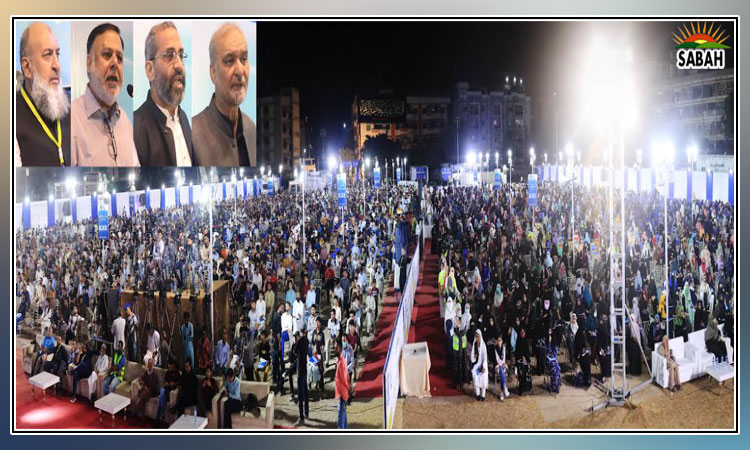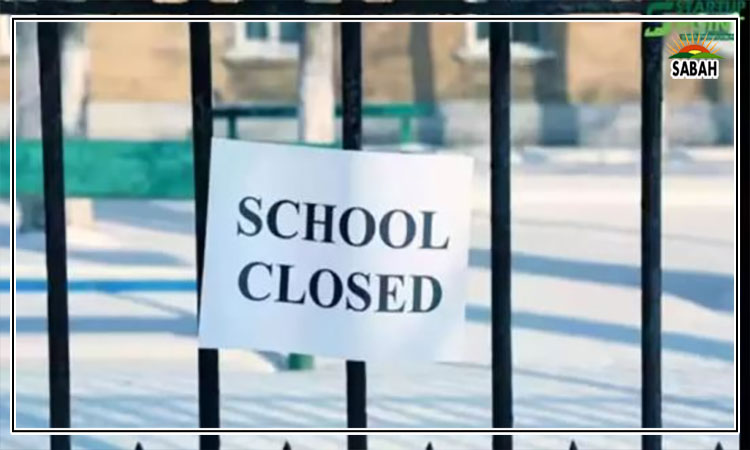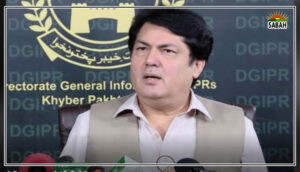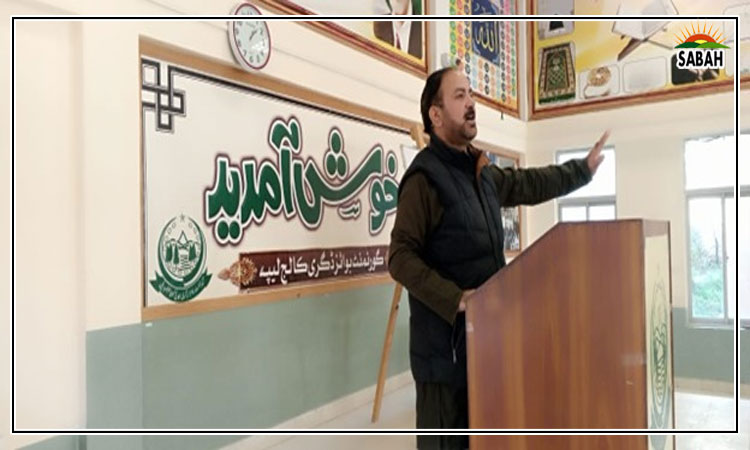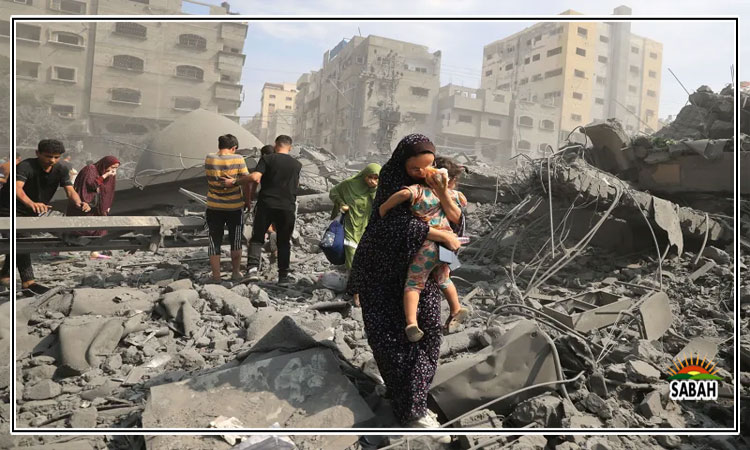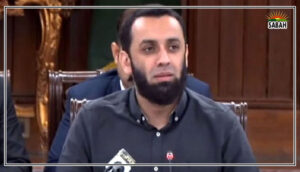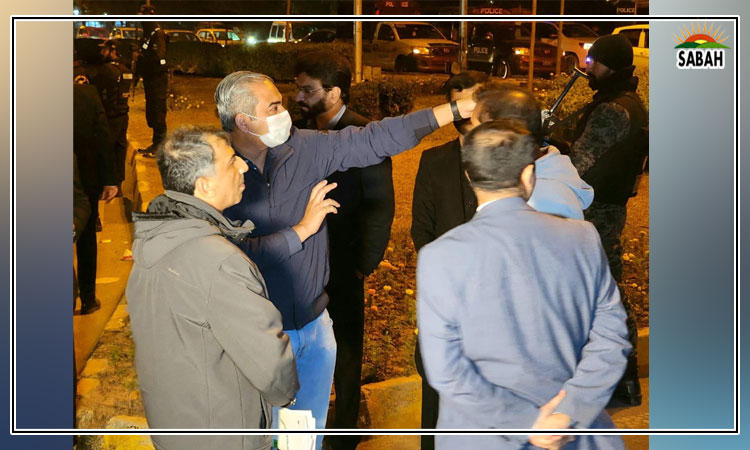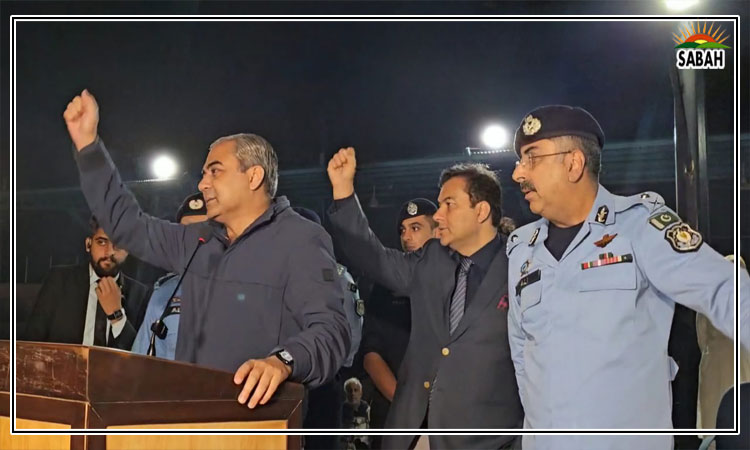Iran’s refusal to back down … Abbas Nasir
THE deputy commander of Iran’s Islamic Revolutionary Guard Corps (IRGC), Gen Ali Fadavi, has said his country’s “response to the Zionist aggression is definite”, in remarks reported by the New York Times, quoting Iranian media. This has again upped the ante in the region.
The NYT report also quoted Gen Fadavi as saying “we have never left an aggression unanswered in 40 years. We are capable of destroying all that the Zionists possess with one operation”, triggering fears of an all-out regional war.
These remarks were the first on-record reaction by Iran to the missile attacks launched by Israeli warplanes last Tuesday which, Israel claimed, caused significant damage to the Iranian air defence missile batteries and sites mixing fuel for its ballistic missiles.
Gen Fadavi was not alone in delivering the warning as the head of Supreme Leader Ayatollah Khamenei’s office, Ghulam Hussain Mohammadi Golpayegani, reinforced the general’s message and said “a fierce, tooth-breaking response” will be delivered to retaliate for Israel’s “desperate action”.
Both these statements came after Ayatollah Khamenei was given a detailed assessment by senior military and IRGC commanders on the damage inflicted by the Israeli air-launched missiles.
One noteworthy element of the Israeli warplanes’ missile attack on Iran was that Saudi airspace wasn’t used and, after Iraqi and Iranian air defence batteries were apparently suppressed by electronic counter measures, as they are called, the ballistic missiles were launched from beyond Iranian airspace in all probability from over Iraq.
Israel has long enjoyed complete sway over Syrian airspace save for the period of the war against the militant Islamic State group when Russian S-400 batteries were deployed along with their crews to curtail Israel’s air force activity in support of IS over Syria.
Iran had warned that it would retaliate against US allies in the region if they participated in any way in a military strike against Tehran. That the airspace of Saudi Arabia and Jordan was not used in the planning and execution of the missile attacks took away the risk of that escalation. For the time being at least.
Military experts are saying that the Iranian response might also come via its assets based in Iraq so further escalation is averted. However, with neither side appearing prepared to back off, a wider war remains on the horizon.
Against this backdrop, the Israeli pogrom in Gaza continues unabated, despite UN warnings of catastrophic conditions in north Gaza and the need for emergency food aid. It is clear Israel’s objective is to depopulate north Gaza.
And its relentless bombing campaign in the rest of the strip is killing dozens, even hundreds, of Palestinians including women and children daily, amid calls to kick out Israel from the UN.
The impunity with which Israel is attacking civilians in Gaza and Lebanon (the south in particular) leads one to believe that the unconditional political and material US, UK and German support is not all that is enabling it to carry on as if it’s business as usual.
Excerpts from American investigative journalist, Bob Woodward’s latest book titled War make interesting reading as they almost portray US President Joe Biden as a helpless angry leader who has zero influence over Israel’s war criminal, Prime Minister Benjamin Netanyahu and often uses profanities while talking to confidantes about him.
But what appears inexplicable at least from the excerpts is that when Biden calls Netanyahu a “b*****d” and uses even fouler language about him with aides, why the US continues to supply arms and armaments and station its own aircraft carrier battle groups, long-range bombers and air defence suppression planes in the region in support of Netanyahu’s genocide policy.
The other alarming, even if not surprising, are the Woodward disclosures about what leaders of Saudi Arabia, the UAE and Jordan privately said to US Secretary of State Antony Blinken in terms of tacitly supporting what’s happening in Gaza.
Egypt’s support was more than tacit, according to Woodward, because apart from President Abdel Fattah el-Sisi reiterating his commitment to the peace treaty with Israel, its intelligence chief shared invaluable targeting information with Blinken to pass on to the Israelis about the Hamas tunnel network and how to draw out and eliminate the group’s leaders.
If true, the remarks attributed to the de facto Saudi ruler Crown Prince Mohammed bin Salman, the UAE President Mohammed bin Zayed and Jordan’s King Abdullah are bereft of empathy for the suffering of Palestinians and amount to an endorsement of Israel’s military campaign.
The remarks appeared so outrageously pro-Israel that some X handles started to dispute them as a deliberate ploy to further divide Arab unity. But even these handles were hard-pressed to list what the militarily/ economically powerful Arab states have done to stay Netanyahu’s hand.
As one pro-Palestinian activist pointed out, South Africa has taken more concrete steps for the cause of Palestine than the entire Muslim world represented by the OIC. The role of individual Arab/Muslim states who had the clout to help has been no different.
Therefore, the Iran-led so-called Axis of Resistance seems to have done more for the Palestinians and taken more risks with their own security and well-being than some of Palestine’s neighbours.
One wonders if this role has brought credibility to Iran’s clergy-led government in the Arab street and washed away the sectarian label stuck to Iran after it helped crush the Syrian resistance.
In the coming weeks, not only will the US presidential race have been decided, but it would also become clear whether Iran has retained enough military capacity to deliver its promised response to Israel’s missile attacks. This will be significant as Israel has claimed severely denuding Iran’s missile launch capability.
The answer to these two questions may well determine whether the Palestinian suffering and their genocide will come to an end.
Courtesy DAWN


